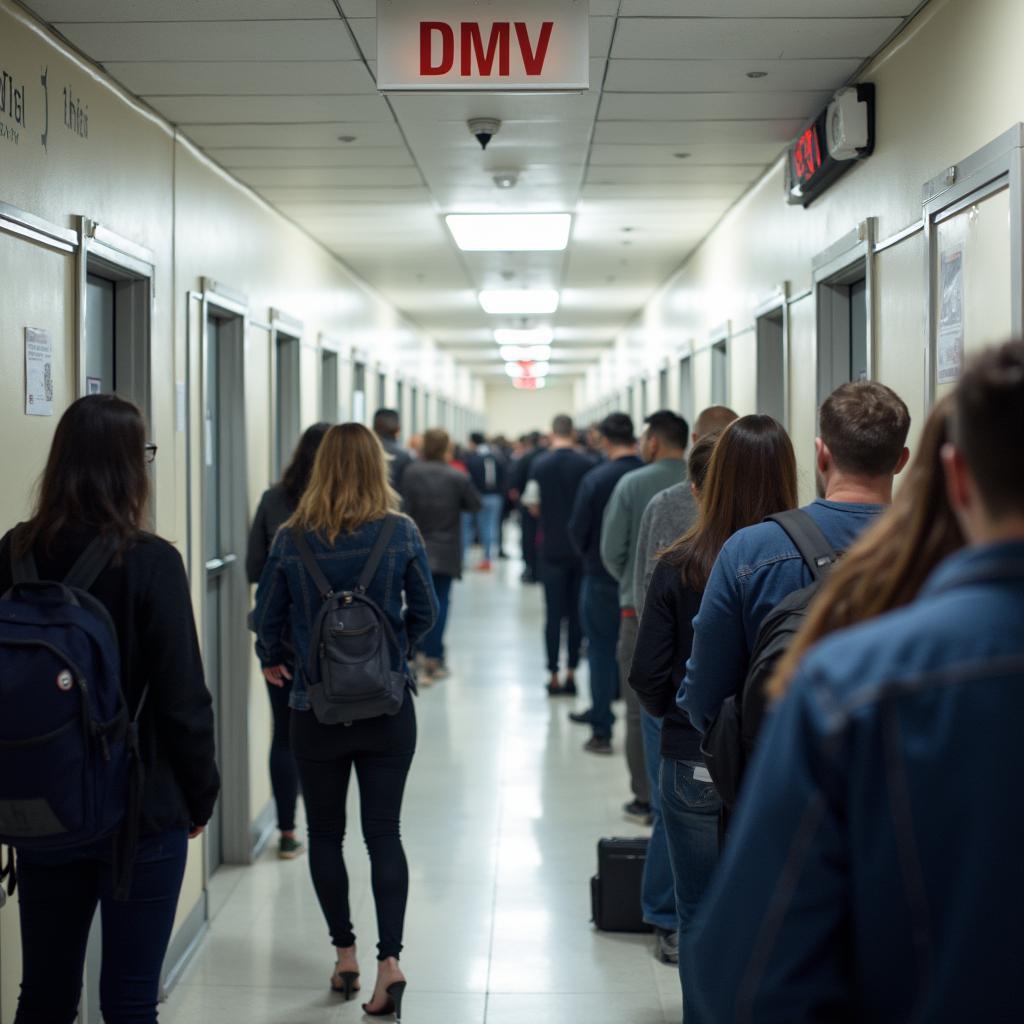Navigating the world of vehicle registration and licensing can often feel overwhelming. Whether you’re a first-time car owner or a seasoned driver, understanding the ins and outs of auto registration license services is crucial. This guide is designed to equip you with all the information you need to make the process seamless and stress-free.
What is Auto Registration License Service?
Auto registration license service encompasses the process of legally registering your vehicle and obtaining the necessary license plates to operate it on public roads. This process involves providing proof of ownership, passing required inspections, and paying associated fees to your local Department of Motor Vehicles (DMV) or equivalent licensing authority.
Why is Auto Registration License Service Essential?
Vehicle registration and licensing are not merely bureaucratic hurdles; they serve vital purposes:
- Legal Compliance: Driving an unregistered or unlicensed vehicle is a serious offense in most jurisdictions, leading to hefty fines, penalties, or even vehicle impoundment.
- Public Safety: Registration helps track vehicle ownership and maintain accurate records, aiding law enforcement in investigations, ensuring road safety, and deterring vehicle theft.
- Infrastructure Funding: Registration fees often contribute to road maintenance, infrastructure development, and transportation-related projects within your state or region.
Understanding the Auto Registration License Service Process
While specific requirements vary by state or country, the general process often involves the following steps:
-
Vehicle Title and Proof of Ownership: You’ll need to provide a valid vehicle title or proof of ownership document. If you’ve recently purchased the car, the dealership may handle some of the initial paperwork.
-
Vehicle Identification Number (VIN) Inspection: Most states mandate a VIN inspection to verify the vehicle’s identity and ensure it matches the information provided on the title.
-
Insurance Coverage Proof: You’ll need to demonstrate proof of valid auto insurance that meets your state’s minimum coverage requirements.
-
Safety and Emissions Inspections: Depending on your location, your vehicle may need to pass a safety inspection to ensure it meets roadworthiness standards. Some areas also require emissions testing to comply with environmental regulations.
-
Completed Application Form: You’ll need to complete your state’s designated vehicle registration application form, providing accurate vehicle and owner information.
-
Payment of Fees: Auto registration license services involve various fees, including registration fees, titling fees, plate fees, and potential taxes. These fees vary significantly based on vehicle type, age, location, and other factors.
Tips for a Smooth Auto Registration License Service Experience
- Gather Your Documents Early: Begin compiling all necessary documents well in advance to avoid last-minute scrambling.
- Check for Online Services: Many DMVs offer online registration renewal or even new registration services, allowing you to bypass in-person visits.
- Be Aware of Deadlines: Take note of your registration expiration date and renew it promptly to avoid late fees or penalties.
- Research Fee Structures: Familiarize yourself with the fee schedule for your specific vehicle type and location to anticipate costs accurately.
- Seek Assistance If Needed: Don’t hesitate to contact your local DMV or licensing authority if you have questions or require clarification on any part of the process.
Choosing the Right Auto Registration License Service Provider
While handling registration yourself is possible, many individuals opt for third-party auto registration license service providers for added convenience. These services can streamline the process, handle paperwork, and even offer mobile registration options.
When selecting a service provider, consider factors such as:
- Reputation and Reliability: Choose a reputable company with positive customer reviews and a proven track record.
- Range of Services: Ensure the provider offers the specific services you require, whether it’s registration renewal, title transfer, or out-of-state registration.
- Fees and Transparency: Compare pricing structures from different providers and ensure their fees are transparently disclosed.
- Customer Service: Opt for a provider with responsive and helpful customer support to address any queries or concerns.
 DMV Office Queue
DMV Office Queue
Conclusion
Auto registration license service is an indispensable aspect of vehicle ownership, ensuring legal compliance and contributing to public safety and infrastructure development. By understanding the process, gathering necessary documents, and exploring convenient options like online services or third-party providers, you can make the experience straightforward and hassle-free. Remember to stay informed about your local regulations and deadlines to maintain your vehicle’s registration status and enjoy peace of mind on the road.
FAQs
1. What happens if I lose my vehicle registration certificate?
Contact your local DMV immediately to report the lost certificate and apply for a duplicate copy. You’ll likely need to provide identification and pay a small fee.
2. Can I register a vehicle in my name if I still have a loan on it?
Yes, you can typically register a vehicle in your name even if you have an outstanding loan. However, the lender’s name may be listed as a lienholder on the title.
3. How often do I need to renew my vehicle registration?
Registration renewal periods vary by state, but they are typically annual or biennial. Check your registration documents or contact your local DMV for specific information.
4. What is a temporary registration, and how long is it valid?
A temporary registration, often printed on paper, allows you to operate a newly purchased vehicle for a limited time while you await the permanent registration and license plates.
5. Can I transfer my existing license plates to a new vehicle?
Policies regarding license plate transfers vary by state. Some states allow it with a fee, while others require new plates for each vehicle. Contact your local DMV for specific guidelines.
Need further assistance with your auto registration license service?
Our team of experts is here to help! Contact us via WhatsApp: +1(641)206-8880, or Email: [email protected]. We provide 24/7 customer support to answer your questions and guide you through every step of the process.


